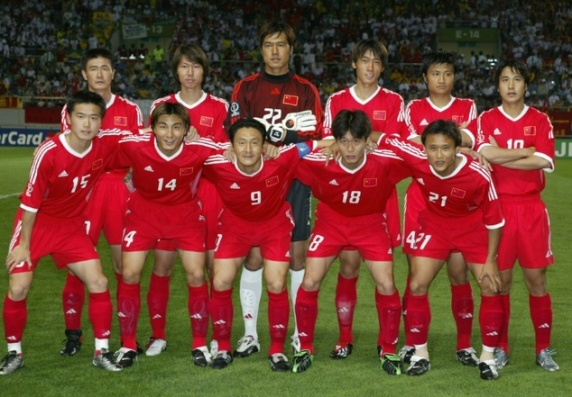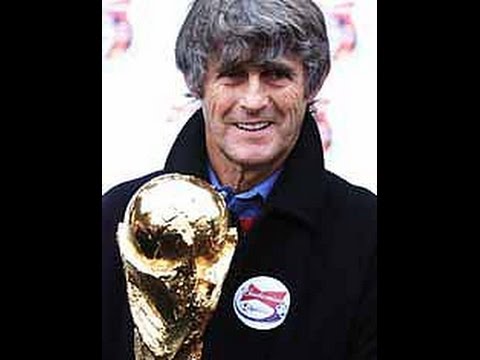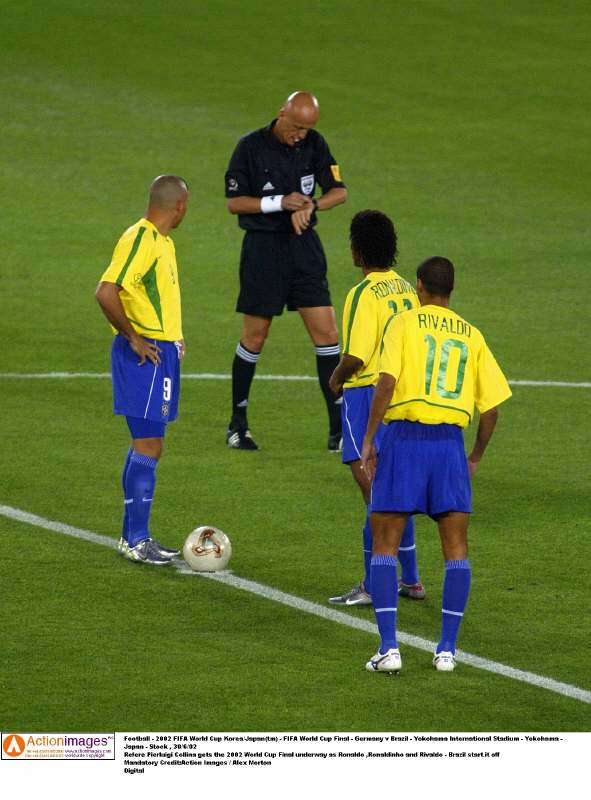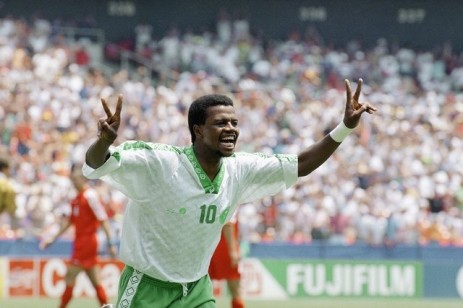
Most of us will have had the conversation in the pub about debating which team is the best, convincing ourselves that we can objectively state an impossible if not pointless statement about which team is better than others from various generations, which at the end of the day is in fact a heavily biased opinion. This a particularly popular topic during international competitions and for obvious reasons during the World Cup, in which you will inevitably hear the usual suspects, the Brazil 1970 team, Brazil 1982 team for some reason (they got knocked out in the quarters), the Holland total football 1974 team etc., all vying for the term the greatest team ever, or at least the greatest World Cup team ever. Personally I think the Spain team from 2008-2010 have a decent shout, but this is beside the point.
A similar conversation, which is rarely had is the worst team. However, one team which is frequently named as the worst team in World Cup history is the China 2002 team, this objective statement can be justified, as a campaign consisting of three defeats, nine goals conceded and not one goal scored, is nigh on impossible to be seen in a positive light. But, sometimes, the statistics do not tell the whole story. So what was undoubtedly a poor World Cup for China as bad as the stats show and bad enough to justify the tag the “worst team in World Cup history?
My few memories of that tournament suggest it was not the worst team in World Cup history, however, since I understand that I can not base a piece on unclear memories of that happened while I was still in secondary school I had to do some research. I have looked at match reports and other reports from the time from the BBC as well as The Guardian. I have also managed to watch highlights of the games on YouTube. This is not perfect research, but it’s about as good as it’s going to get.
As ever, a bit of background is needed to understand the situation going in to the World Cup in Japan and Korea.
For this competition Asia had for the first time been allocated 4.5 slots, which it still has to this day, increased from the previous 3.5 slots. As joint hosts Japan and Korea obviously automatically qualified which still left the possibility of 3 more teams. This was before the days of Australia being in the Asian Football Confederation and the Middle Eastern teams were going through a poor spell, presenting China with the best opportunity it had ever had to qualify. China jumped at this opportunity winning their qualifying group gathering 19 points from 8 games, topping their group and securing one of the two automatic qualifying positions. This performance suggests even if Japan and Korea had to qualify China would still have qualified automatically. It also coincided with what was the national teams best period, reaching the semi-final and then final in the two Asian Cups surrounding the World Cup.

Guiding China through the qualifying sages (also leading them to the Asian cup semif-final in 2000) was the man nicknamed ”the miracle worker”, Bora Milutinovic. He is a classic journeyman eastern European manager, who goes from smaller team to smaller team raising standards and getting the most out of what are usually average at best players. The Yugoslavian, although not necessarily a household name is a highly respected manager, having the impressive record of taking five different teams to five consecutive World Cups this included the Nigeria team of ’98. He was probably the most suitable man for the job and most likely to organise a good campaign.
So going in to the World Cup they were probably the third best team in asia, which although not enough to make them an elite in global football, suggested they would at least be able to hold their own. So how did this brief campaign look?
China’s first game on the highest of all stages in global sport was against Costa Rica on 4 June 2002 in the Korean city of Gwangju. China started a little nervous and were feeling their way in to the game, in to the tournament and despite having less possession managed to keep it tight and go in at half time 0-0. In the second half they came out brighter perhaps a sign of more comfort on this new stage. However, two swift goals around the hour mark gave Costa Rica the lead shocked China and really put the game beyond the reach of them as they were not really a force going forward. China tried to pull the game back, but the string had snapped, the result could have been worse. Likewise, on another day, it could have been better. The popular consensus was that Costa Rica did not have an amazing game and China, by no means disgraceful, just didn’t produce a good performance on the day. Milutinovic was happy with the performance, if not the result and gave a simple summing up of events “the difference was the goals”.
This game was presumably targeted by both teams as a “must-win” for any chance of progression, or as an opportunity to avoid a white washing. This is because their next 2 games were to be more of a challenge.

Next up for China was the glamour tie, a chance to play a team of world class, world famous stars and a taste of “what World Cup football is all about”. Brazil, the most successful and famous team of them all is what was facing China. This was arguably the best Brazil team in a long time and one to rank alongside their other famous teams in light of the fact their front three Ronaldo, Rivaldo and Ronaldinho had all won or would go on to win the Balon D’or. In fact another Balon D’or winner Kaka would have to be satisfied with a spot on the bench for practically the whole competition.
The game went the way China feared and the gulf in quality between the two groups of players suggested it might. It was a dominant performance by the Brazilians. It was not a perfect performance, but that was more down to the fact that Brazil did not even need to go in to second gear. China again produced a solid, hard working performance, but the quality shone through, almost from the get go.
China did start off well, taking the game to Brazil and trying to force the issue, but this positive performance was checked after a quarter of an hour. The scoring was opened up by a bullet of a Roberto Carlos free-kick, it then seemed a long way back for the Chinese. Two more first half goals followed from Rivaldo and then Ronaldinho. Like with the Coasta rica game, the string snapped at two. Following the third it seemed to turn in to a damage limitation exercise. A Ronaldo goal was always coming and it finally arrived in the second half. Afterwards China continued to push, to try and get on the score sheet, but were unsuccessful.
The summary was in much them vein to that of the Costa Rica game, not a bad performance, not humiliated, but just not good enough, which is perfectly understandable, after all most teams would prove to be lacking a lot in the face of that Brazil team.
So progression in to the second round, as unlikely as it seemed previously was now confirmed as an impossibility. Their trip to Korea would be cut short and would have to return home after their third and final game against Turkey.
Turkey were also a different calibre of team, although they obviously did not have quite the same talent of Brazil, they were an experienced team with a decent crop of players. Added to this following their draw with Costa Rica in their previous game, they had to win and by a bigger margin than the 2-0 Costa Rica managed in the first game.
Again a quick brace proved to create too big a hurdle for China to overcome and the loss was all but sealed after only 10 minutes. The game did not follow exactly the same pattern of the previous performances, it was actually an open game as there was the feeling China were making an effort to go after that still elusive first World Cup goal. They created a few good chances and hit the woodwork, but were in the end unsuccessful. Turkey rounded off the game with a third, five minutes from time capped off a World Cup whitewashing for China.
So was this team worthy of the title “the worst in history”? I think in short, no.
As has been explained China did not really play very badly, they were just outclassed in all three games. The first game, as already mentioned was probably the most disappointing as Costa Rica were definitely the weakest of the other three teams in the group. However, any team is bound to be nervous going in to their first game in World Cup history, with all the pressure and attention that went with it. After all, it is estimated over half a billion Chinese tuned in to watch it.
Following this they played the team that would go on and win the thing, Brazil, as well as defeated (by Brazil again) semi-finlaists Turkey. It could be argued China were drawn in the highest quality group of the tournament and if for instance they were drawn in Group B alongside Spain, South Africa and Slovenia, they would probably have faired considerably better.
Also, after reminding myself of how the other groups went, China did not even have the worst record of the tournament. This unfortunate label would lie with the other qualifier from the asia, Saudi Arabia. They finished the tournament with no points, twelve conceded goals and no scored goals, this also included the 8 nil loss to Germany.
Since this somewhat disappointing debut by China, there have been 8 occasions in which teams have been whitewashed. For the sake of fairness, I will name these in 2006: Togo, Serbia and Montenegro, Costa Rica, in 2010: North Korea, Cameroon, in 2010: Honduras, Australia and Cameroon again. Although on all these occasions these whitewashed teams did manage to score a goal, I don’t think one goal in a meaningless goal against average opposition really signifies a team was that much better than China. Undoubtedly the fact no goals were scored by China is one of the first measuring sticks we look at, without looking at the context and the manner of these performances we just get a very superficial impression. But for anyone who has watched a reasonable amount of football will, for sure have experienced a team who did everything but get the ball in the net and likewise, a team who did not get a touch the whole game and fluked a goal at the death to win 1 nil.
However, as is probably natural, with time we do tend to forget all but the most stand out moments and thus what we remember are the score lines. I would wager after 15 years and the passing of 3 more World Cups, most of us have forgot all the content of all the China games, but on 13 June 2002, the day after China played their third and final game, I think we certainly did not consider them the biggest disgrace to have graced the World Cup.

I think other factors contributing to the “worst team ever” statement is to do with the fact it was China’s first (and until now only) World Cup, meaning there is no other, positive China World Cup memory, unlike Roger Milla with Cameroon in Italia ‘90, Saeed Al-Owairon with Saudi Arabia in USA ’94 or even Pak Do Ik for North Korea in 1966. There was no single moment of brilliance or skill, so I guess the default would be that it was all bad.
I think the way China is such a significant country on the world stage in so many arenas, including politics, economics and even many other sports, when seen in this context a poor World Cup performance may be judged even worse. This is obviously not very reasonable, but it is true that the performance of China will attract more attention than the performance of other teams representing countries less significant in our lives such as Honduras or Togo. The fact China was the most populous nation in the world helps draw statements like “one and half billion people, but they can’t score a goal”.
Finally, I think the fact that Asian countries are still associated with a high footballing ability makes a statement as such easier to arrive at. For instance the fact the European team Serbia and Montenegro also got whitewashed, or African team Cameroon have been whitewashed (twice) may not seem quite as bad as, because these teams come from areas with a widely recognised footballing heritage, which East Asia just does not possess. I am not saying that all these thought processes shape everybody’s opinion, but I do think they may help shape some people’s opinions.
To sum up, this is probably a chapter of Chinese footballing history which many Chinese may want to forget, but unfortunately for them, it is their most significant achievement to date and will continue to shape international impressions of Chinese football. But, it was in no way as bad as results may imply and I strongly disagree with the statement it is the “worst team in World Cup history”.